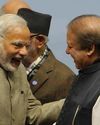New Delhi should not jettison its hard-won strategic space in Myanmar because of self-righteous moral posturing.

FINALLY, MYANMAR’S DE facto leader Aung San Suu Kyi broke her silence on the Rohingya crisis last month. After being pilloried across the globe for her indifference to the plight of Rohingya Muslims, Suu Kyi, in her speech to Myanmar’s parliament, said she felt “deeply” for the suffering of “all people” in the conflict, and that Myanmar was “committed to a sustainable solution… for all communities in this state”. While she condemned “all human rights violations and unlawful violence”, she also made it clear that her government had made efforts in recent years to improve living conditions for the Muslims in Rakhine province — providing healthcare, education and infrastructure. Most significantly, she suggested that all refugees in Bangladesh would be able to return after a process of verification. The Myanmar military, for its part, says its operations in Rakhine are aimed at rooting out militants, and has repeatedly denied targeting civilians.
But Suu Kyi’s statement failed to satisfy her critics who feel she is not using her moral power to influence the military’s targeting of Rohingyas. She does not control the military and there continues to be a trust deficit between the two. But her refusal to condemn military abuses against Rohingyas provides the generals with political cover. From the regional perspective, she was under pressure from Bangladesh and India to do something about the refugee situation.
This story is from the October 2017 edition of Swarajya Mag.
Start your 7-day Magzter GOLD free trial to access thousands of curated premium stories, and 9,000+ magazines and newspapers.
Already a subscriber ? Sign In
This story is from the October 2017 edition of Swarajya Mag.
Start your 7-day Magzter GOLD free trial to access thousands of curated premium stories, and 9,000+ magazines and newspapers.
Already a subscriber? Sign In

Refuging Progess
There is a well-orchestrated global conspiracy to deny scientific and technological developments from the West to Third World countries.

The Monk Of Science
Vivekananda believed that Religion should be subjected to scientific methods of investigation. The third and concluding part of our series on the Swami and his views on science.
The Next Step
Indian technical manpower can be trained for high-value-added emerging services in the era of mass commoditisation of hardware.
The Threat Of Autarchy
The force of globalisation is an irreversible reality, and it is countries like India and China that will nurture it going forward.

Neanderthals: The Womb Of Caves
Recent discoveries indicate that Neanderthals may have had a rich inner life, including symbolic thought. Indeed, they may have been the progenitors of human religions.

Getting India's World Right
Incremental concessions will get India nowhere with Pakistan and China. What we need is a classically conservative foreign policy, based on realism.

The Hesitant Orbit
In order to march boldly ahead into the deep space, New Delhi must work towards building a station, boost its techno-economic planning and use the Indian Space Research Organisation smartly.

Nudges And Narratives
The debate surrounding Sanjay Leela Bhansali’s Padmavati brings India a complex network of portraits within a cultural world-system.

The Spell Of Specialisation
THE INDIAN ADMINISTRATIVE SERVICE NEEDS AN URGENT REJIG. THE KEY TO SPEED AND EFFICIENCY LIES IN PUTTING AN END TO A GENERALIST APPROACH AND IN GOING FOR A NEW SERVICE.
The Great Gamble
With demonetisation, the prime minister has taken a huge risk— both economic and political. He must succeed, because this move could transform both our economy and our society.